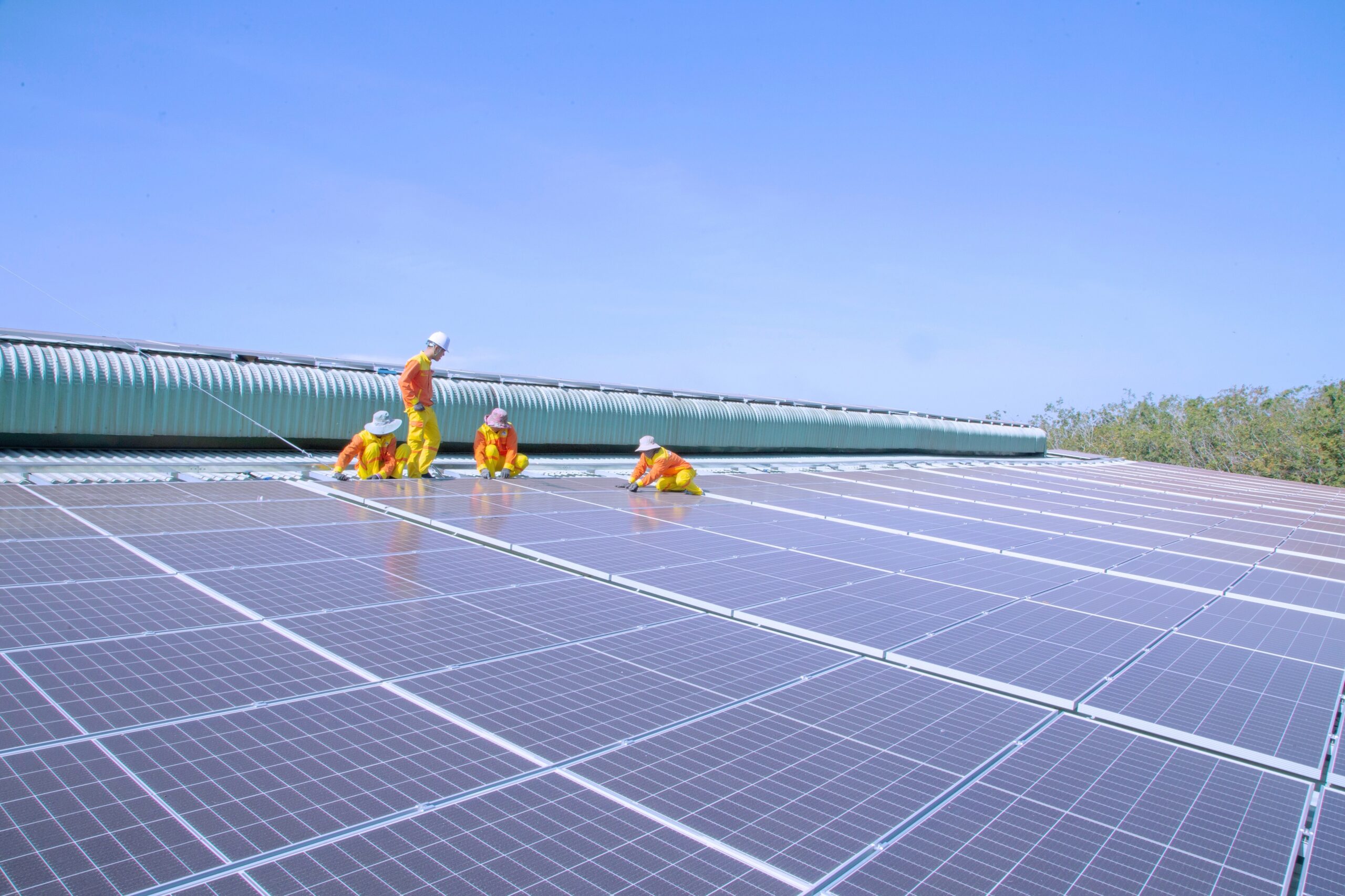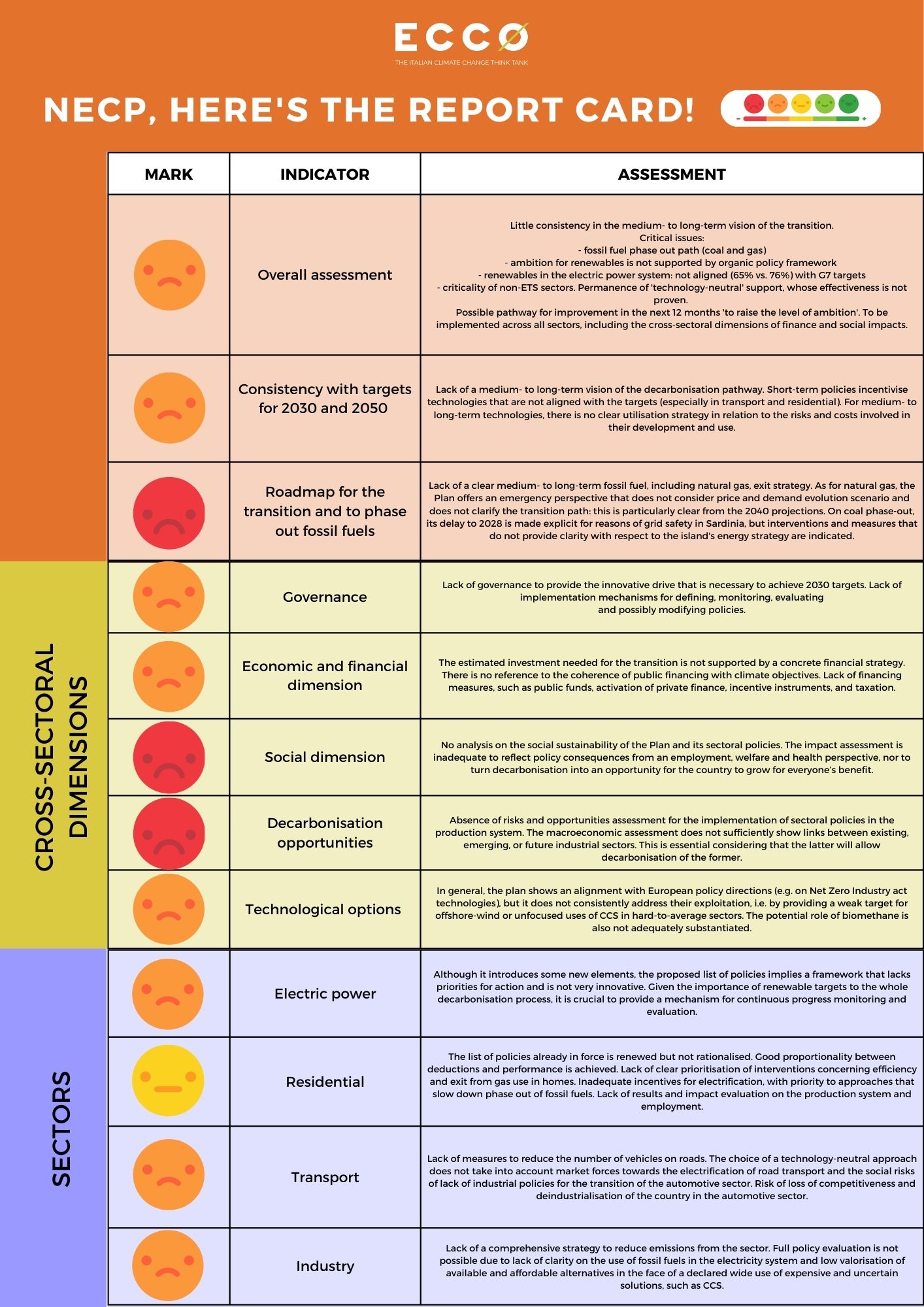After a preliminary analysis of the proposed National Energy and Climate Plan (NECP), published on 19 July, we have drawn up a report card to evaluate the plan.
Click here to download the NECP report card
Overall assessment
- The Plan aims to move away from the 2019 NECP approach, considered too optimistic when it comes to translating policies into credible targets.
- The Plan has significant limitations: it does not provide a fossil fuel exit pathway – especially for gas – consistent with the 2050 climate neutrality target; it does not guarantee a sufficient degree of penetration of renewables in the electric system and as a consequence, it is not aligned with the G7 2035 target to decarbonise electricity production; it does not define a framework of policies and measures based on a critical analysis of achievements, also in non-ETS sectors. The technology neutrality approach is not supported by a transparent evaluation, which is necessary to measure the effectiveness of public spending. The policy framework appears complex, redundant and, in several cases, inconsistent with the target.
- A governance framework, which makes the Plan an effective implementation tool even after its approval, is missing. The monitoring process, which has its own dimension, is not linked to a continuous process of improvement and adaptation of the Plan, one that would also include a constant dialogue with all the actors involved in its implementation.
- Openness towards a process of improvement – that is to be developed over the next 12 months – ‘to further raise the level of ambition’. This process should be implemented in all sectors, including enabling dimensions such as finance and the social dimension, and it should consider impact on the productive structure.
Click here or on the image below to download the NECP report card.
Click here to download the Italian version of the NECP report card. This includes further assessments for each sector.
Areas to be improved:
- The proposed 2023 Plan must represent a starting point for the development of a document with the potential to express a vision of Italy’s decarbonisation pathway and coherently adjust policies and measures in an organic, non-contradictory and innovative framework.
- Defining a governance for the implementation of the Plan. The Plan should be adopted through an appropriate legal instrument. It is important to envisage implementation mechanisms with full involvement of territories and parties and empowerment of the bodies that are involved in the implementation at several levels. Merely restoring the regional burden sharing of renewable targets or listing the numerous – and evidently ineffective – measures for simplifying the authorisation process cannot fully meet this need. The Plan must also represent a clear change of pace in the achievement of those targets that are now considered achievable. In the absence of effective governance, one that adequately values contribution of investors within an unambiguous regulatory framework, there is a risk of falling back into the ‘optimistic’ approach of 2019.
- The Plan’s governance should allow monitoring, evaluation, and updating of measures in relation to the goals. The Plan should also serve as a policy enabler. Furthermore, it should allow a constant dialogue with parties, bodies, and actors involved in the implementation, enhancing bottom-up actions based on clear and non-contradictory top-down.
In conclusion, the Plan should be able to go beyond energy and climate and return a vision of the country’s development, evaluating the effects of policies on the economic, social, and productive system, enhancing the opportunities and risk management of a process of economic transformation towards ecological transition.
Click here to download the NECP report card
Photo by Hoan Ngoc





